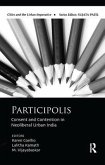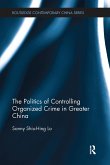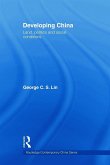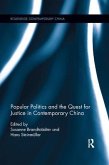The aim of this book is to make sense of the recent reform of neighbourhood institutions in urban China. It builds on the observation that the late 1990s saw a comeback of the state in urban China after the increased economization of life in the 1980s had initially forced it to withdraw from society. The authors hypothesise that the central government has indeed displayed an impressive adaptive capacity with regards to the social problems in China's shequs. It has managed to bring the party-state back into urban society by enhancing its infrastructural power to provide better social welfare and improve public security. In testing this hypothesis, the book examines in great detail the rationales, strategies and impacts of this comeback by analyzing systematically how the reorganization of neighbourhood committees was actually conducted.








